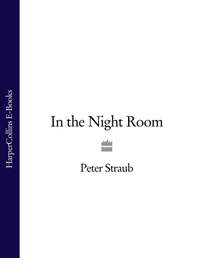
Полная версия
Mr. X
Dear Mr Dunstar,
I regret the necessity of informing you of a troubling matter recently brought to my attention by Mr Roman Polk, the Manager of Food Service Personnel at Middlemount College, in which capacity Mr Polk supervises our full-time kitchen staff and those members of the student body for whom Food Services Placements have been awarded in accordance with the conditions of their Middlemount Student Support Scholarships.
Mr Polk informs me that you have failed to meet seven out of ten of your last Food Service Placement appointments, furthermore that you were absent on sick leave upon nine previous occasions. This is a matter of concern to us all.
We will meet in my office at 7:30 A.M. on the first academic day of the coming term, January 20, for a discussion of Mr Polk’s charges. You remain a valued member of the Middlemount community, and if for some reason Food Services was an inappropriate placement, another might be found. In the meantime, I wish you success in your examinations.
Sincerely yours,
Clive Macanudo
Dean of Student Affairs
When I emerged from the little cell block housing our mailboxes, who stood in the cold athwart the cement path, resplendent in a long, forest-green loden coat, fresh comb tracks dividing his thick hair? Horst might as well have been wearing a Tyrolean hat with a feather jutting from the band. He glanced at the letter protruding from my coat pocket. ‘Are you all right?’
‘Stop following me, you creep.’ I tried to walk around him.
‘Please, forget about the other night.’ Horst moved in front of me. ‘I made a silly mistake and misinterpreted our brief conversation of the day before.’
Evidently I had spoken to him in the student bar that Friday and forgotten about it later. That was fine with me. I had succeeded in forgetting most of Friday’s events as they were happening, and I certainly did not want to remember anything I might have said to Horst. ‘Fine,’ I said. ‘But if you don’t stop following me, I’m still going to cut you.’
‘Please, Ned, really!’ He stepped back and raised his gloved hands in surrender. ‘Only, you do not look well. I ask as a friend, are you all right? Is anything wrong?’
‘Here we go,’ I said. ‘Count of three, remember? One.’
‘Ned, please, you don’t own a knife. In fact, you are about as dangerous as a bunny rabbit.’ Smiling, he lowered his hands. ‘Let me buy you a cup of coffee. You could tell your problems to me, after which I will explain how to fix them, after which I will bore you with mine, after which we will drink a beer and decide our problems are not so serious after all.’
‘After which we will go back to your room and fix your boring problems by taking off our clothes.’
‘I’m not talking about that,’ Horst said. ‘Honestly. I am simply offering to be of help.’
‘Then simply get out of my way.’ I walked straight toward him, and he got out of my way.
Later that afternoon, I sat frozen at the base of a giant oak and attended to the deep, nearly inaudible sound, as of powerful machinery at work, filtering up through the snowpack. Snatches of high-pitched music resounded either from the air itself or from the movement of the air through the branches. The music-laden air filled with grains of darkness, the grains coalesced, and the darkness blotted out the light.
Wednesday morning, I saw my guitar case propped beside the door. The sight immediately suggested the inspiration of adding to the music of Jones’s Woods. I jumped out of bed.
Having breakfasted on sour milk and Cape Cod potato chips, I edged into the quad, keeping a weather eye out for Horst. He did not show himself. Neither did my chemistry results, although Professor Medley’s conclusions had been posted on the board. While the names of everyone else in my section were followed by letters indicating their grades, after ‘Dunstan, Ned’ appeared only the nongrade ‘Inc,’ abbreviation-speak for ‘Incomplete.’ I stumbled back to my room and rammed the day’s nourishment into my coat pockets, remembering as I did so the summons from On High. Once again I entered the glum post office and found an official envelope pressed against the glass window of my box. Clive Macanudo: The Sequel. This time, he spelled my name right.
Dear Mr Dunstan,
I apologize for the secretarial error which resulted in the misspelling of your name throughout my letter of yesterday.
This morning, Professor Arnold Medley of our Chemistry Department spoke to me concerning your performance in his Chemistry I course. Professor Medley greeted your results on his final examination with a great deal of surprise. As you submitted the only perfect examination of the Professor’s long experience and went on to solve several extra-credit questions, your numerical grade on the examination was 127 out of 100, or A++.
Professor Medley is of the opinion that no student with grades consistently at or below the C level could have so greatly improved his grasp of the material as to earn an A++ on the final examination without unlawful assistance. I spoke on your behalf. Professor Medley agreed that at no time had he observed you cheating in any way and could offer no proof that you had not earned your result honestly. However, he found the result so anomalous as to justify his suspicions.
We have reached the following accommodation. You shall retake the Chemistry I final examination under conditions of the strictest security and at your earliest convenience. I suggest 7:45 A.M. on this coming Friday, should you be present on campus, and if not, at 6:30 A.M. on January 20, immediately prior to our meeting concerning Mr Polk’s allegations. The retesting shall take place in my office, with Professor Medley and myself present. I take the liberty of recommending that you spend the intervening days in preparation.
Sincerely yours,
Clive Macanudo
Dean of Student Affairs
The usual sense of being home settled my nerves as soon as I entered the woods. The rushing in my ears yielded to the creaking of laden branches, the territorial chatter of birds, the clicks and taps made by squirrels in the course of their missions. Eventually I began to hear the trebles chiming from glittering icicles and soon after, the deep bass humming beneath the icepack. I opened the guitar case, took out my instrument, and reverently settled it into the hollow between my hunched shoulders and the tops of my thighs.
Shortly before noon the next day, I awoke with no memory of having returned to the campus. I stumbled out of bed, sneezed thunderously, and thrust myself into the most convenient clothing. By force of habit I stopped into the mail-jail on the way out of the dormitory complex. Another official envelope had been jammed against the rectangular glass window. ‘Clive, baby,’ I said and tugged out the enclosed letter with great curiosity.
Mr Dunstan,
Once again the morning has been disrupted by a visit from one of your Professors. Your position here at Middlemount is in grave peril.
Professor Roger Flagship demanded that I inspect the three blue books which you submitted to him upon conclusion of the final examination in Introductory Calculus. Professor Flagship informed me the examination was of the multiple-choice variety and that blue books were to be used for computation. He further informed me that he intended to take the steps necessary to effect your expulsion from Middlemount College. Not only had you failed the exam by correctly answering only twelve out of one hundred questions, you had subjected both his course and himself to mockery. Professor Flagship drew my attention to several obscene caricatures of himself contained within the blue books.
Furthermore, Professor Flagship states that on the evening of the examination you appeared in his office to beg for the return of your blue books, a grade of Incomplete in Introductory Calculus, and an opportunity to repeat the course. Following his refusal of these extraordinary requests, you responded to his efforts to secure the blue books, which he had as yet not read, by pushing him back into his chair and then fleeing. He attributed your behavior to hysterical panic and chose not to bring it to my attention. The contents of the blue books decided him otherwise.
After thoughtful consideration, also after factoring in the other matters before us, I ask you to report to our January 20 meeting at the originally designated time of 7:30 A.M. with any records, along with evidence of previous psychiatric treatment, which might assist me in protecting your position here at Middlemount College.
To facilitate the search for your records, I am sending a copy of this letter to your guardians, Mr and Mrs Philip Grant of Naperville, Illinois.
Sincerely yours,
Clive Macanudo
Dean of Student Affairs
I blew my nose on Clive’s letter and pitched it into the waste-basket, more disturbed by his sending it to the Grants than by my imminent expulsion. Phil and Laura would understand that what I was doing was vastly more important than the pablum dished out in my classes.
On my way back to the center of the universe I thought I caught a glimpse of a green loden coat and a flash of bright hair in the midst of the row of trees bordering the western end of the campus. The lovesick stalker vanished the instant I looked again, and I put him out of my mind.
After an hour’s silent meditation had permitted me to hear the music in the air, after another hour of adding my part to it, a gathering sense of being as yet not absolutely in the right place caused me to get back on my feet and move deeper into the woods until I came upon the ruins of a cottage. I creaked open the door and beheld the rotted wooden walls, the single broken window, the litter of feathers, tiny skeletons, and dried animal feces on the dirty floor, and knew that here it was at last, the right place. It, too, was an instrument. Steady music flowed through the cottage, produced by the wind hissing through the gaps in the timbers and the patter of squirrels in the crawl space overhead. I enjoyed a blissful hour of adding a modest accompaniment and, just before dark, ran to my room for blankets and provisions and hurried back while I still had light enough to see.
The cottage emerged from the surrounding darkness like a tall shadow in the sacred woods. Faint strains of the music within called to me, and I rushed over the snow and opened the creaking door. When I entered, I seemed instantly to plummet through the rotting floor. I fell; I saw nothing; I did not fear. A long, shabby, once-handsome room took shape before me. Out of my range of vision, a man spoke of smoke and gold and corpses on a battlefield. My head pounded, and my stomach was afflicted. On the mantel over the fireplace stood a dying Boston fern, a stuffed fox advancing within a glass bell, and a brass clock with weights revolving left-right, right-left, left-right. This was backward, it was past, and I had been here before. I fell to my knees on the worn Oriental carpet. Before I vomited, the world melted and restored itself, and the contents of my stomach drizzled onto the ruined floor. Home, I thought.
11
While still presentable enough to go into town, I stocked up on canned food and camping equipment. I got a sleeping bag and a battery-powered lamp. After I realized that I could make use of the fireplace, I bought bags of charcoal briquettes, a hatchet, lots of fire starter, a grate, and packages of frozen meat I buried in the snow and thawed out over flames coaxed from lumps of charcoal and chopped-up deadwood. Some nights, raccoons climbed through gaps in the flooring and fell asleep like dogs in front of the dwindling fire. Toward the end of my forty-five days in the cottage, when going into town would have invited arrest or hospitalization, I dropped into my old meal-job kitchen late at night and stole whatever I couldn’t gobble on the spot. Forest-music, nature-music, planet-music took up the rest of my time. My cold turned into pneumonia, and I took the fevers, sweats, and exhaustion for signs of grace.
Everyone else feared that the loss of my scholarship had driven me to suicide. Phil and Laura flew to Middlemount and participated in the search for my hypothetical remains. A livid Clark Darkmund declared that not only had he not invited me on a family vacation to Barbados, his winter break had been spent entirely in Hibbing, Minnesota. The police searched the college grounds, with no result. The town of Middlemount was canvassed, with next to no result. The winsome senior photo in my high school yearbook reminded one Main Street shopowner of a recent customer, but he had no idea of where the customer might have gone after leaving the store. After stapling posters all over town and campus, the Grants returned to Naperville.
Horst never bothered to look at the posters. He assumed that I had been ducking him. When he did finally happen to notice the resemblance between the photograph and myself, he reported to Dean Macanudo. Within the hour, he was leading a deputation of local police and emergency medical technicians into Jones’s Woods. They found me slumped over my warped guitar and picking at its two remaining strings, and unceremoniously rolled me onto a stretcher.
Seeing a dream-Horst peering down at me from within the upturned collar of his loden coat, I asked, ‘Why do I think you’re following me, Horst?’
‘You told me to watch out for you,’ said the figment.
I looked around at the crumbling walls and the mess of blankets on the floor in an unwelcome return of sanity. It had all been a gigantic error. Horst was real after all, and I had been wrong. This had never been the right place for which I had mistaken it.
The first person to visit me in Middlemount’s Tri-Community Hospital was Dean Clive Macanudo, a glossy diplomat whose pencil mustache and Sen-Sen breath could not entirely conceal his terror of any actions I or my guardians might see fit to take against the college. It never occurred to me to sue Middlemount, nor did it occur to Laura, who walked into my room on the second day of my hospitalization. Phil had been denied permission to leave work, or so she said, and although his absence meant that we could speak more freely, the weight of my guilt made her stricken presence a torment. Two days later, Laura went back to the Middlemount Inn for a nap, and I checked out of the hospital, went into the middle of town, passed the inn, turned into the bus station, and vamoosed.
From then on, I kept moving. I had jobs in grocery stores, in bars and shoe stores, jobs where I strapped on headsets and tried to persuade strangers to buy things they didn’t need. I lived in Chapel Hill, Gainesville, Boulder, Madison, Beaverton, Sequim, Evanston, and little towns you wouldn’t know unless you were from Wisconsin or Ohio. (Rice Lake, anyone? Azure?) I spent about a year in Chicago, but never went to either Edgerton or Naperville. After I’d been living at the same address long enough to get a telephone listing, Star surprised me a couple of times by phoning me or sending a card. Three or four times a year, I called the Grants and tried to convince them that my life had not dwindled into failure. In 1984, Phil, a lifelong nonsmoker, died of lung cancer. I went to his funeral and spent a couple of days in my old room, staying up late and talking with Laura. She seemed more beautiful than ever before. Sometimes we clung together and wept for everything that could not be undone. Two years later, Laura told me that she was remarrying and moving to Hawaii. Her new husband was a retired lawyer with a lot of land on Maui.
Every now and again, a stranger would approach me and back away in embarrassment or annoyance at my failure to give acknowledgment; some version of this happens to almost everybody. In the Omaha Greyhound bus terminal, a woman of about thirty recoiled from the sight of me, grabbed the arm of the man next to her, and pulled him through a departure gate. Two years later, an older woman in a fur coat strode up to me in the Denver airport and slapped my face hard enough to raise a welt that showed the stitching on her glove. On a street corner in Chicago’s Loop, someone gripped my collar and jerked me out of the path of a hurtling taxicab, and when I looked around, a kid in a stocking cap said, ‘Man, your brother, he took off.’ Fine. Another time in another year, a guy next to me in a bar, I don’t even remember where, told me that my name was George Peters and that I had been his history T.A. at Tulane.
Sometimes I think that everyone I’ve ever known has had the feeling of missing a mysterious but essential quality, that they all wanted to find an unfindable place that would be the right place, and that since Adam in the Garden human life has been made of these aches and bruises. Just before I turned twenty-six, I got a job in telephone sales for an infant software company in Durham, North Carolina, and did well enough to get promoted into a job where I more or less had to enroll in a programming course at UNC. Not long after, the company made me a full-time programmer.
In all of my wandering I stayed clear of New York. I thought the Apple would slam me to the pavement and squash me flat. Three years after I took the programming job, the software company relocated to New Brunswick, New Jersey. For the first time in my life I had a little money in the bank, and once I got to New Brunswick, New York started flashing and gleaming in the distance, beckoning me to the party. Two or three nights every month, I took the train to the city and stopped in at restaurants and jazz clubs. I went to a Beethoven piano recital by Alfred Brendel at Avery Fisher Hall and Robert Shaw’s Missa Solemnis at Carnegie Hall. I heard B. B. King and Phil Woods and one of Ella Fitzgerald’s last concerts. Eventually I started calling a few software outfits in New York, and two years after moving to New Jersey I got a better job, packed up, and went to the party.
I had an apartment across from St Mark’s Church on East Tenth Street and a decent job, and I was happier than ever before in my life. The right place turned out to be the one I’d been most afraid of all along, which sounded about right. On my birthdays, I called in sick and stayed in bed. And then, in the midst of my orderly life, I started getting this feeling about my mother.
12
It began as a kind of foreboding. A few months after moving to New York, I telephoned Aunt Nettie to ask if she had heard anything from Star. No, she said, how about you? I told her I’d been worried and gave her my number. ‘That girl, she’s made out of iron,’ Nettie said. ‘Instead of fretting about your mother, you ought to worry about yourself for a change.’
I told myself that Nettie would call me if anything serious happened. Nettie loved disaster, she would sound any necessary alarm. But what if Star had not alerted her? I called Aunt Nettie again. She told me that my mother was in East Cicero, ‘whoopin’ it up,’ she said, ‘with two old rascals.’ I asked her for Star’s telephone number, but Nettie had lost it and could not remember the names of the two old rascals. They owned a nightclub, but she couldn’t remember its name, either.
‘It’s no difference,’ she said. ‘Star is going to let us know if she needs help, and if anything happens to us, she won’t have to be told to get here as fast as she can. She’ll just know. A streak of second sight runs through the Dunstans, and Star has her share. You do, too, I think.’
‘Second sight?’ I asked. ‘That’s news to me.’
‘You don’t know beans about your own family, that’s why. They say no one would play cards with my father because he could see what they had in their hands.’
‘You don’t really believe that,’ I said.
She gave a soft, knowing laugh. ‘You’d be surprised at some of the things I believe.’
One night I dreamed that I crawled into my mother’s bed on Cherry Street and heard her mutter a name or word that sounded like ‘Rinehart.’ Part of the dream’s experience was the awareness that I was dreaming, and part of my awareness was of replaying a moment from childhood. My worries subsided again, though the underlying anxiety surfaced when I was alone in my apartment, especially if I was doing something that reminded me of her, like washing the dishes or listening to Billie Holiday on WBGO. At the start of the third week in May, I asked for all my accumulated sick leave on the grounds of a family emergency. My boss told me to take as much time as I needed and keep in touch. I started shoving things into my duffel bag as soon as I got home.
I didn’t think I was going anywhere in particular. It never occurred to me that under the pressure of anxiety, I was reverting to my old, self-protective pattern. At the same time, as I said before, I knew exactly where I was going and why. At the moment Star was boarding the Greyhound, I was in the cab of a Nationwide Paper sixteen-wheeler bound for Flagstaff, enjoyably discussing the condition of African Americans in the United States with its driver, Mr Bob Mims, and my defenses collapsed and the truth rushed in. Star had used the last of her strength to get herself home, and I was going there to be with her when she died. Once Bob Mims found out why I wanted to get to Edgerton, he veered from his normal route to take me to the Motel Comfort south of Chicago on the interstate.
After an hour of waving my thumb at the side of the highway, I checked in to the motel. All the car-rental agencies were closed for the night. I went to the bar and started talking to a young assistant D.A. from Louisville named Ashleigh Ashton who was on maybe her second sea breeze. When she spelled her name and asked if I thought it was (a) pretentious and (b) too cute for a prosecutor, the drink in front of her seemed more likely to have been her third. If she didn’t like the way defendants grinned when they heard her name, I said, she should grin back and put ’em away. That was a pretty good idea, she said, would I like to hear another one?
Whoops, I thought, three for sure, and said, ‘I have to get out of here pretty early.’
‘I do, too. Let’s leave. If I stay here any longer, one of these guys is going to jump me.’
Sitting at the bar were two heavyweights with graying beards and biker jackets, a kid in a T-shirt reading MO’ BEER HERE, a couple of guys with chains around their necks and tattoos peeping out from under their short-sleeved sport shirts, and a specter in a cheap gray suit who looked like a serial killer taking a break from his life’s work. All of them were eyeing her like starving dogs.
I walked her through what seemed a half mile of empty corridors. She gave me a quizzical, questioning look when she unlocked her door, and I followed her in. She said, ‘What’s your story anyhow, Ned Dunstan? I hate to bring it up, but your clothes look like you’ve been hitchhiking.’
I gave her a short-form answer that implied that I had learned of my mother’s illness while hitchhiking for pleasure on a whim. ‘It was something I used to do when I was a kid,’ I said. ‘I should have known better. If I had a car, I could get to Edgerton tonight.’
‘Edgerton? That’s where I’m going!’ Suspicion rose into her eyes for a moment, and then she realized that I could not have known of her destination until she announced it. ‘If we’re still speaking to each other tomorrow morning, I could give you a ride.’
‘Why wouldn’t we be speaking to each other?’
‘I don’t know.’ She raised her arms and looked wildly from side to side in only half a parody of extremity. ‘Don’t guys hate the idea of waking up beside someone they don’t know? Or get disgusted with themselves, because they think the woman’s cheap? It’s a mystery to me. I haven’t had sex in a year. Thirteen months, to be exact.’
Ashleigh Ashton was a small, athletic-looking woman with short, shiny-blond hair and the face of a model for Windfoil parkas in an Eddie Bauer catalog. She had spent years proving to the men who took her for a cupcake that she was capable, smart, and tough.
‘Why is that?’ I asked.






